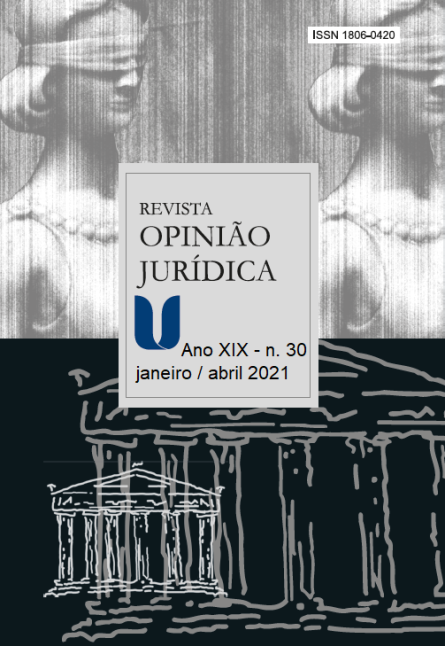CFM REGULATION AND CHALLENGES IN SOFT LAW APPLICABILITY IN TERMINALITY CASES
DOI:
https://doi.org/10.12662/2447-6641oj.v19i30.p1-34.2021Keywords:
Biolaw, Bioethics, Terminality, Softlaw, Federal Council of Medicine, ResolutionsAbstract
Objective: The objective of the present study was to analyze how the main national soft laws related to terminality have been (or not) adopted in medical practice, indicating ways to overcome obstacles in their application.
Methodology: We use a qualitative, descriptive and exploratory approach, with bibliographic review of articles, legal order and clinical works.
Results: In the analysis, structural, institutional, technical-legal and social challenges related to terminality were found.
Contributions: Based on results, measures of potential resolution were proposed: institution of palliative protocols; use of indicators to characterize terminality; use of scales to define prognosis; prediction of actions that contemplate the entire line of care; formalization of the inclusion of a patient in a protocol; establishment of rules on the definition of the legitimate representative, in case of impossibility of direct manifestation of the patient's will, and recording in minutes of meetings held with family members.
Published
How to Cite
Issue
Section
License
CESSION OF COPYRIGHTS
The submission of articles to analysis for publication on Opinião Jurídica implies the author(s) transfers copyrights to Centro Universitário Christus – UNICHRISTUS for reproduction, publicizing, distribution, printing and publication, according to the Publication Norm 414R, Opin. Jur., Fortaleza, year 12, n. 16, p.1-414, Jan./Dec. 2014, costs to be bore by UNICHRISTUS, in whatever format or means that may or shall exist, in accordance to articles 49 and following of Federal Law 9.610/98.
1. In ceding copyrights, the author(s) agrees to do so in exclusivity, free of charge and for the totality of the work.
2. UNICHRISTUS may make the work, in its entirety or in parts, available for scholarly purposes, without altering its contents, except for small corrections that are deemed necessary.
3. The cession of copyrights is valid in all countries and for versions of the material in its original language or translated into a foreign language.
RESPONSIBILITY FOR THE CONTENT
By submitting an article, the author(s) declare to have sole responsibility for the content of the piece and is(are), therefore, responsible for any judicial or extrajudicial measures referring to it.
1. In case of joint authorship, all authors are considered collectively responsible, except when proved otherwise.


















